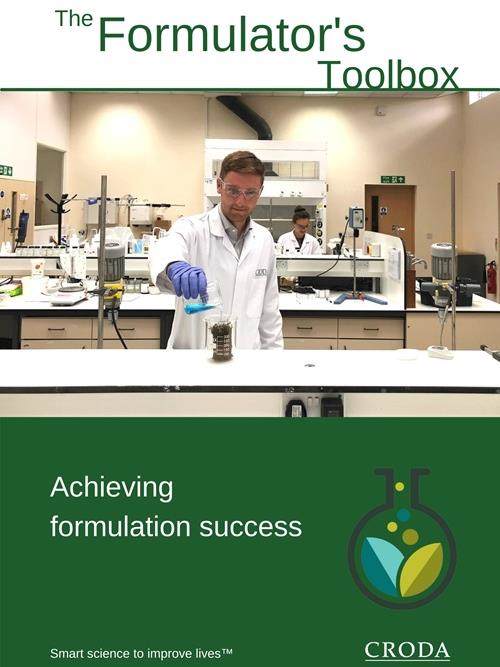
Flowable concentrates for seed treatment (FS)
In the agrochemical industry, flowable concentrate (FS) formulations are a way of applying crop protection products to seeds. A FS is defined as suspensions of solid active ingredients in water which are applied to seeds prior to planting.
FS formulations are a modification of suspension concentrates (SC) with supplemental additives for adhesion to the seed surface and colourants as safety markers to indicate that a seed has been treated with a product.
FS formulations are now the most popular type of seed treatment because they are concentrated formulations and are safer to apply as they are water-based.

Benefits
- Aqueous based and dispersible in water, which means good safety and user convenience
- Low potential for germination issues
- Have good retention on the seed
- No dust problems as it is a liquid formulation
- Easy-to-clean-up seed treatment machinery post-treatment
Limitations
- Storage stability may be affected by temperature extremes
- High loading levels may cause stickiness and poor flow properties of the seed
Seed treatment formulations usually contain multiple active ingredients and/or high loading levels. Additionally, the active ingredient has to be accurately and evenly spread over the seed surface and must remain there throughout storage, drilling, and while the seed starts to germinate. To successfully develop these types of formulations, superior formulation additives are essential. The high-performance requirement and complexity of seed treatments also mean they must reach hard-to-reach seed surfaces. Formulating is the key challenge—one of which is that treating seeds with pesticide formulations can alter the properties and characteristics of the seeds. We simplify formulation development with our Seed Vision™ range, which brings seed treatment innovation into focus.
Products recommended for FS
The use of polymeric dispersants are highly recommended due to their higher molecular weight, large repulsive barrier and many anchoring groups per molecule. This enables highly loaded, stable seed treatments to be formulated.
.jpg&mn=cropcare&w=768&xr=0&yr=0&xfp=6&yfp=6&hash=BD59CDA3AD2D12C9BC33E8F774B6CB4F19C138999FEC74AA) Featured
Featured
Atlox Metasperse™ 500L
 Featured
Featured
Atlox™ 4913
 Featured
Featured
Atlox™ 4917
It is important to include a wetting agent as during the milling process, fresh surfaces are generated which are generally of non-polar nature and will flocculate together rapidly. This could lead to increased viscosity and even mill blockage. Including a wetting agent overcomes this as it replaces air and prevents agglomeration, allowing dispersants to perform. Wetting agents can also provide some dispersion.
.jpg&mn=cropcare&w=768&xr=0&yr=0&xfp=6&yfp=6&hash=20085CA4656E3D1606EFFB22F3D81A0819C138999FEC74AA) Featured
Featured
Atlas™ G-5000
.jpg&mn=cropcare&w=768&xr=0&yr=0&xfp=6&yfp=6&hash=48717E6EA80954ABD146F117F2CAC16E19C138999FEC74AA) Featured
Featured
Atlas™ G-5002L
.jpg&mn=cropcare&w=768&xr=0&yr=0&xfp=6&yfp=6&hash=2DB72ABD5AB1ECC294B3ADDE82DCB7F919C138999FEC74AA) Featured
Featured
Atlas™ G-5004 LD
 Featured
Featured
Atlox™ 4894
.jpg&mn=cropcare&w=768&xr=0&yr=0&xfp=6&yfp=6&hash=03A08E2BE410ABFAB97AA35279EE7D5D19C138999FEC74AA) Featured
Featured
Crodafos™ C10/5A
If an FS is not properly structured, the formulation can breakdown resulting in solid particles settling to the bottom of the formulation. This leads to reduced shelf-life stability and poor performance in the field. The inclusion of a rheology modifier helps overcome this issue by increasing the viscosity of the formulation, providing improved stability. Please note that Atlox Rheostrux™ is not EPA cleared.
 Featured
Featured
Atlox Rheostrux™ 300A
A binder system is used to adhere the formulation to the surface of the seed. An effective binder should improve dust-off without compromising wet and dry flow of seed.
 Featured
Featured
Atlox™ 4917
 Featured
Featured




